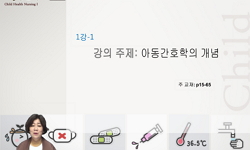본 연구는 다문화가정 아동의 자아정체감에 영향을 미치는 변인을 사회인구학적 변인, 아동이 지각한 어머니 양육행동과 아동의 학교생활만족도를 중심으로 탐색하여 다문화가정 아동의 ...
http://chineseinput.net/에서 pinyin(병음)방식으로 중국어를 변환할 수 있습니다.
변환된 중국어를 복사하여 사용하시면 됩니다.
- 中文 을 입력하시려면 zhongwen을 입력하시고 space를누르시면됩니다.
- 北京 을 입력하시려면 beijing을 입력하시고 space를 누르시면 됩니다.
다문화가정 초등학교 아동의 자아정체감 연구 : 어머니 양육행동과 학교생활만족도와의 관계를 중심으로 = (A) sense of self-identity in elementary school children of multi-cultural families :in respect to the relations between maternal mother's behaviors and children's satisfaction levels with school
한글로보기https://www.riss.kr/link?id=T11875978
- 저자
-
발행사항
부천 : 가톨릭대학원 대학원, 2010
-
학위논문사항
학위논문(박사) -- 가톨릭대학원 대학원 , 생활문화학과 아동가족학 전공 , 2010. 2
-
발행연도
2010
-
작성언어
한국어
- 주제어
-
DDC
372.1 판사항(21)
-
발행국(도시)
경기도
-
형태사항
113 p : 삽도 ; 26 cm.
-
일반주기명
가톨릭대학교 (성심) 논문은 저작권에 의해 보호받습니다.
지도교수: 문혁준
참고문헌(p. 80-98) 포함 - 소장기관
-
0
상세조회 -
0
다운로드
부가정보
국문 초록 (Abstract)
본 연구는 다문화가정 아동의 자아정체감에 영향을 미치는 변인을 사회인구학적 변인, 아동이 지각한 어머니 양육행동과 아동의 학교생활만족도를 중심으로 탐색하여 다문화가정 아동의 특성을 포괄적으로 분석하여 다문화가정 아동의 자아정체감에 체계적 이해를 제공하고자 하는 데 그 목적을 두었다.
연구대상은 초등학교 4, 5, 6학년으로 전라북도에 재학 중인 다문화가정 아동 310명을 대상으로 구조화 된 질문지를 사용하여 자료를 수집하였다. 자아정체감 측정도구로 박아청(2003)이 개발한 ‘한국형 자아정체감 검사’를 연구자가 예비조사와 본조사를 통해 요인 분석하여 사용하였고, 아동이 지각한 어머니의 양육행동을 측정하기 위하여 박영애(1995)의 아동용 양육행동 척도를 재요인분석하여 도구의 타당도를 검증한 김문정(2004)의 도구를 사용하였다. 아동의 학교생활만족도를 알아보기 위해 국내의 선행연구와 USA Group Noel-Levitz(2003)의 연구, Missouri School Improvement Program(MSIP)에서 제시한 평가내용을 참고로 우리나라의 교육현실을 감안하여 강윤정(2005)이 개발한 척도를 사용하였다.
수집된 자료는 SPSS WIN 16.0 프로그램을 이용하였다. 각 검사도구의 신뢰도를 구하였으며 빈도, 백분율, 평균, 표준편차를 산출하였으며, t-test와 ANOVA, 사후검증(Scheffé), Pearson의 상관분석 분석, 위계적 회귀분석을 실시하였다.
주요 연구결과는 다음과 같다.
첫째, 다문화가정 아동의 성별과 학년에 따라 자아정체감과는 유의미한 차이가 나타나지 않았다. 어머니 국적에 따라서는 유의미한 차이가 나타났는데 중국인 어머니를 둔 아동의 자아정체감이 가장 높게 나타났고 필리핀 어머니를 둔 아동의 자아정체감이 가장 낮게 나타났다.
둘째, 다문화가정 아동의 사회인구학적 변인, 어머니 양육행동, 아동의 학교생활만족도는 아동의 자아정체감과 상관관계가 있었다.
셋째, 다문화가정 아동의 자아정체감과 관련된 변인들의 상대적 영향력을 성별과 국적에 따라 살펴본 결과, 모두에서 어머니 양육행동이 가장 큰 영향력을 미치는 변인으로 나타났다. 개별 영향 변인으로 남아는 거부·제재를 여아는 학교생활만족도로 나타났으며, 어머니 국적에 따라서는 중국인 어머니를 둔 아동은 개별변인으로는 학교생활만족도에서, 일본인 어머니를 둔 아동은 거부·제재에서, 필리핀 어머니를 둔 아동은 허용·방임 변인이 가장 높은 영향을 미치는 것으로 나타났다.
다국어 초록 (Multilingual Abstract)
This study had a purpose to present the comprehensive grasp of variables that influence a sense of self-identity in children of multi-cultural families. Focusing on variables of social demographic backgrounds, child-perceived maternal mother's behavio...
This study had a purpose to present the comprehensive grasp of variables that influence a sense of self-identity in children of multi-cultural families. Focusing on variables of social demographic backgrounds, child-perceived maternal mother's behaviors, and children's satisfaction levels with school, it inquired into the traits of the children.
The subjects were composed of 310 elementary students with grades from the fourth to sixth, currently enrolled in North Jeolla Province. Data were collected, using structured questionnaires. As a self-identity measurement tool, Korean Self-identity Test developed by A-Chung Park(2003) was utilized. As for measuring the child-perceived maternal mother's behaviors, Moon Jung Kim's scale which verified the validity of Young Aye Park's(1995) mother's Behavior Scale for Children by re-analyzing its components was used. To investigate children's satisfaction levels with school, the Yoon Jung Kang's(2005) scale was acquired; the scale takes the reality of Korean education field into account and refers to the evaluations presented in prior studies at home, and the studies of USA Group Noel-Levitz(2003) and MSIP(Missouri School Improvement Program). The collected data were processed, using SPSS WIN 16.0 version. The reliability, frequencies, percentiles, averages, standard deviations for each measurement instrument were calculated, and t-test, ANOVA, Scheffé's posttest, Pearson's correlational analysis, and a hierarchical regression analysis were conducted.
The results of this study were as follows:
Firstly, no significant difference were found in a sense of self-identity by sex and grade of children of the families. But a significant difference were found by nationality of mothers; specifically, children with Chinese mothers show the highest cohesion of self-identity whereas those with Filipino mothers had the lowest one.
Secondly. it was found that a correlation exists among social demographic variables, maternal mother's behaviors, children's satisfaction levels with school, and self-identity in children of the families.
Thirdly, as a result of investigating the relative effects children's social demographic variables, maternal mother's behaviors, and satisfaction levels with school have on their senses of self-identity according to the sex of children, and nationality of their mothers, all the domain of maternal mother's behaviors is found to have the greatest impact on them. As for individual variables, it was reported that boy's rejection·discipline/reprimand mother's behaviors was affected sense of self-identity, in the order hands girl's satisfaction levels with school was affected. Variables affecting the self-identity in children of the families by nationality of mothers were investigated. But in the light of individual categories of mother's behaviors, some differences were found by mother's nationality. For those with Chinese mothers, it was reported that a sense of self-identity was affected children's satisfaction levels with school. Japanese mothers, it was reported that rejection·discipline/reprimand mother's behaviors was affected sense of self-identity. Filipino mothers, unlike the other two groups, only the approval·neglect mother's behaviors were distinctively affecting the children's self-identity.
목차 (Table of Contents)
- 국문초록
- Ⅰ. 서론
- 1. 연구의 필요성 및 목적 1
- 2. 연구문제 8
- 3. 용어의 정의 8
- 국문초록
- Ⅰ. 서론
- 1. 연구의 필요성 및 목적 1
- 2. 연구문제 8
- 3. 용어의 정의 8
- Ⅱ. 이론적 배경
- 1. 국제결혼과 다문화가정의 형성 10
- 1) 한국사회의 국제결혼과 출신국가의 추이 10
- 2) 다문화가정의 개념 13
- 3) 다문화가정과 다문화가정 아동의 특성 14
- 4) 다문화가정 관련 선행연구 17
- 2. 다문화가정 아동의 자아정체감 19
- 1) 자아정체감의 개념과 형성 19
- 2) 자아정체감의 하위요소 23
- 3. 다문화가정 어머니의 양육행동 25
- 1) 양육행동의 개념 및 측정모형 25
- 2) 다문화가정 부모의 양육행동과 자아정체감 29
- 4. 다문화가정 아동의 학교생활만족도 30
- 1) 학교생활만족도의 개념 및 구성요소 30
- 2) 다문화가정 아동의 학교생활만족도와 자아정체감 35
- Ⅲ. 연구방법
- 1. 연구대상 37
- 2. 연구도구 40
- 3. 연구절차 44
- 4. 자료처리 45
- Ⅳ. 연구결과 및 해석
- 1. 다문화가정 아동의 사회인구학적 변인에 따른 어머니 양육행동, 아동의 학교생활만족도 및 자아정체감의 차이 46
- 2. 다문화가정 아동의 사회인구학적 변인, 어머니 양육행동, 아동의 학교생활만족도와 아동의 자아정체감과의 관계 50
- 3. 다문화가정 아동의 사회인구학적 변인, 어머니 양육행동, 아동의 학교생활만족도가 아동의 자아정체감에 미치는 상대적 영향력 53
- Ⅴ. 논의 및 결론 65
- 참고문헌 80
- 부록 99
- ABSTRACT 112












